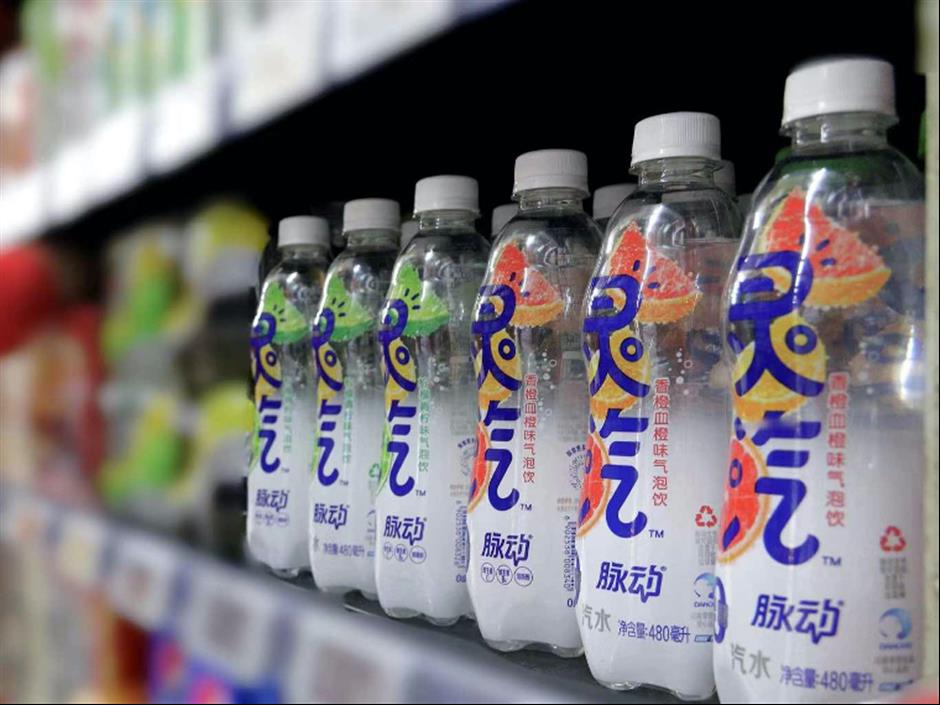Innovative, healthy and cheap: Tea drink brands adapt to new reality
China's two most prominent tea drink chain stores Heytea and Nayuki seem to be moving away from their previous premium brand images following recent price drops.
Heytea and Nayuki have announced price cuts of up to one third in the past month, as consumer preference and competition landscape enters a new stage.
Heytea said in late February that it will keep prices of all new offerings below 30 yuan (US$4.7) this year and more than 60 percent of its offerings are now priced between 15 yuan to 25 yuan.
Nayuki made a similar move earlier this month and said it has made the price cut decisions based on customer insights and intends to offer more affordable and wider product choices. It has promised that all new products would be priced under 20 yuan for each month this year.

Heytea and Nayuki are the two leading tea drink brands which usually target customers that are willing to pay a premium for new flavors.
It seems inevitable that the two brands would move to the next period of the price war after using up all other forms such as taste, packaging, and store layouts to differentiate themselves from smaller and standalone vendors.
Han Yi, director general of the coffee and tea drinks specialty commission at the China Tea Marketing Association, commented that as consumer behavior shifts, exploring price-sensitive consumer groups is a natural choice at the moment.
"It's a wise move to address customers who want reasonable prices and high quality at the same time," he noted.

A fruit tea drink.
Nayuki's share price sank nearly 80 percent after its IPO in mid-2021 in Hong Kong amid slowing revenue growth. It said in a preliminary earnings report that its estimated adjusted net loss will be between 130 million yuan to 165 million yuan, with revenue coming in at 4.28 billion yuan to 4.32 billion yuan.
The company added that it has maintained a recovery trend for same-store sales in January this year.
One Weibo user named Karis said there are now simply too many options for an afternoon drink. "Sometimes I do feel freshly-made tea drinks costing more than 35 yuan are overpriced," he noted.
"The price cuts certainly benefit most consumers and I hope they don't compromise on the quality," said Shanghai office worker Miranda Pan, who often orders takeaway from Heytea for afternoon breaks.
According to a latest survey by NCBD, a local catering and retail news portal, as many as 74 percent of consumers prefer milk teas with price labels between 10 yuan to 20 yuan, and only about 6 percent prefer prices over 20 yuan.
Tea drink chains mixing salt cheese with tea prospered in recent years and they have since expanded to fruit-based drinks, seasonal offerings and snacks.
Nayuki and Heytea used to market their offerings at an average price of 30 yuan, with the relatively high-priced drinks still taking the market by storm because of their original tastes and fresh packaging designs.
At least a dozen tea drink vendors are turning to lesser-known regional fruits to make seasonal drinks, filling a demand from consumers no longer satisfied with traditional fruit flavors.
But flavor innovation is not the magical cure to lure back shoppers as most customers have become more cautious on discretionary spending and have scaled back on dining.

A Nayuki outlet in Shanghai
The COVID-19 pandemic resurgence in Shanghai has had an effect on dining and casual beverage vendors.
At the same time, freshly-made tea drinks are facing increasing challenges from boutique coffee vendors and packaged beverages.
Bottled beverage vendors are rushing to cater to stay-at-home demand and preferences for tasty and healthy options.
Two new fruit-flavored sparkling drinks by Mizone will hit the market this month in the latest effort to ride the wave for tasty sugar-free and nutritional drinks among young consumers.
Mixuebingcheng, a Henan-headquartered local beverage and ice cream brand known for its inexpensive tea drinks, is planning a new bottled sparkling drink of peachy oolong flavor after filing a package patent with local authorities recently.

An outlet of Heytea.
Retail consumption of tea beverages in China is projected to expand at an annual pace of 14.6 percent to about 810.2 billion yuan by 2025, according to domestic consultancy CIC Research.
However, more than 1,000 tea beverage vendors are grappling for a share of such a highly competitive market and regional preferences vary in different locations, even as both Heytea and Nayuki are feeling the pinch of higher operation costs and lack of strong brand identity to fuel further growth.
Freshly made tea drinks in China were valued at about 113.6 billion yuan in 2020 and sales are expected to grow at an annual pace of nearly 25 percent, reaching 340 billion yuan by 2025.
Their subsequent success is likely to largely rely on how they cater to regional demands instead of staging marketing stunts and charging a high brand premium.

Danone's Mizone is the latest to offer bottled sparkling sugar-free drinks to cater to demand from health-conscious young customers.















